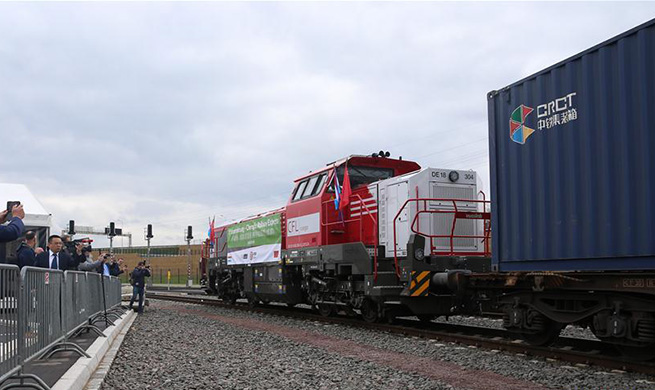NAIROBI, April 5 (Xinhua) -- The next phase of agricultural transformation that is required to boost food security and rural incomes across Sub-Saharan Africa will be realized through adoption of new technologies and innovation, experts said on Friday.
Speaking at the Disruptive Agricultural Technology conference taking place in the Kenyan capital, Nairobi, policymakers and experts said that greater uptake of digital platforms by African small-holders is key to boosting yields.
"Technology is key to boosting efficiency, productivity and competitiveness of agriculture in the African continent," said Hamadi Boga, principal secretary in Kenya's ministry of agriculture.
"We should invest in ICT to help serve our farmers better, ensure they have access to real time information on farm inputs, weather patterns, markets and appropriate storage," he added.
Kenya is hosting the two days Digital Agriculture Technology, Innovation Knowledge and Challenge Conference that is being attended by policy makers, scientists, industry executives and founders of agri-based start-ups to explore novel innovations that can transform small-holder farming in Africa.
The conference that is sponsored by the World Bank and a consortium of international research organizations will culminate in award of seed capital to outstanding local agri-tech start-ups that are transforming livelihoods of small-holder farmers.
Edson Mpyisi, chief financial economist at African Development Bank (AfDB), said that technologies like mobile phone applications, big data, drones and artificial intelligence if harnessed tactfully could provide durable solution to hunger and malnutrion crisis in the continent.
He urged African governments to prioritize regulatory reforms in order to boost investments in disruptive technologies required to boost crop yield and farmer's income amid climatic shocks, shrinking arable land and population pressure.
Sriram Bharatam, founder of Nairobi based social enterprise, Kuza Biashara said that African countries can leverage on digital revolution to reorganize agricultural value chains and make them resilient to extreme weather events and market volatility.













